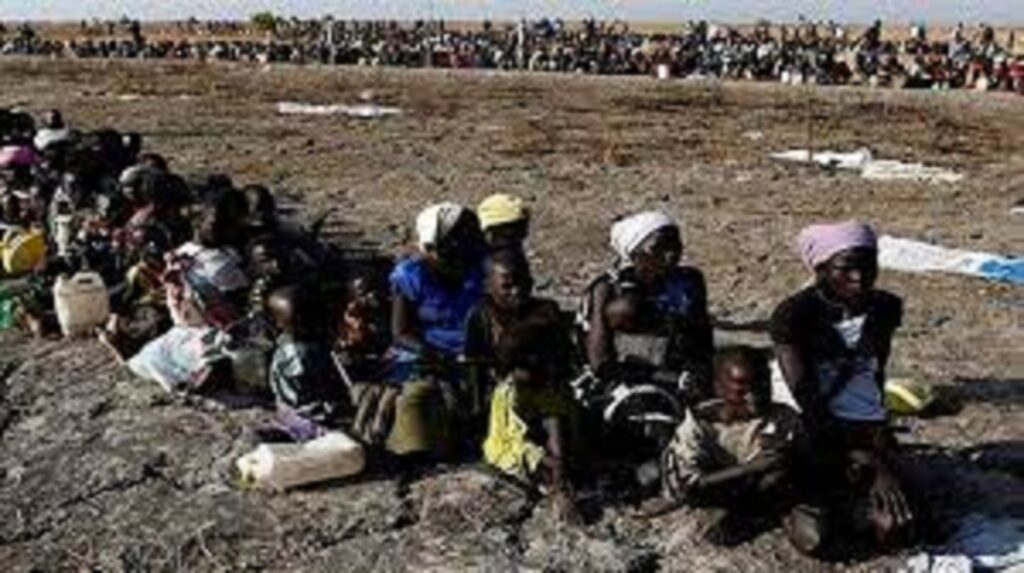A recent United Nations early warning report has highlighted an alarming increase in acute food insecurity across 18 hunger hotspots. The report, issued by the Food and Agriculture Organization (FAO) and the World Food Programme (WFP), underscores the urgent need for immediate assistance to prevent famine in Gaza and Sudan, and to address worsening hunger crises in Haiti, Mali, and South Sudan.
Conflict and Climate Extremes Fuel Crisis
The report attributes the growing food insecurity to the confluence of conflict, climate extremes, and economic shocks. These factors are driving vulnerable households into deeper food crises, exacerbated by overlapping and simultaneous shocks. The report also warns of the lingering impact of El Niño and the impending threat of La Niña, which could further destabilize lives and livelihoods by causing climate extremes.
Decline in Humanitarian Funding
For the first time since 2010, humanitarian funding is projected to decline, although it remains the second highest ever. This funding shortfall comes at a critical time when anticipatory and proactive measures are essential to prevent crises. FAO Director-General QU Dongyu emphasized the need for a shift from reactive to proactive approaches, stating, “Acting ahead of crises can save lives, reduce food shortages, and protect livelihoods at a much lower cost than a delayed humanitarian response.”
Dire Situation in Gaza
The report highlights the catastrophic situation in Gaza, where ongoing conflict has led to severe hunger and displacement. Over one million people, half of Gaza’s population, are at risk of starvation (IPC Phase 5) by mid-July unless hostilities cease and humanitarian access is restored. The crisis in Gaza also threatens to exacerbate food security issues in neighboring regions, including Lebanon and Syria.
Sudan’s Escalating Crisis
In Sudan, conflict and displacement are accelerating at an alarming pace, with 18 million people facing acute food insecurity. The crisis, now in its second year, has led to nearly 10 million internally displaced people, the largest number globally. The situation is further strained by an additional two million people fleeing across borders, impacting neighboring countries such as South Sudan and Chad.
Haiti’s Violent Upheaval
Haiti is grappling with a protracted economic crisis and violence from non-state armed groups, which have disrupted food supplies and displaced over 362,000 people. The report warns that without improved humanitarian access, the risk of catastrophic food insecurity and malnutrition remains high.
Intensifying Conflict in Mali
Mali faces a critical situation with escalating conflict and the full withdrawal of the UN Multidimensional Integrated Stabilization Mission. The already dire levels of acute food insecurity are expected to worsen, calling for immediate humanitarian action.
South Sudan’s Growing Hunger
In South Sudan, the number of people facing starvation is projected to nearly double between April and July 2024 compared to the same period in 2023. Rising food prices, driven by tight supplies and currency depreciation, are compounded by likely floods and subnational conflicts. The influx of refugees from Sudan is adding to the strain on food security.
Climate Threats Persist
The report also notes the severe impacts of El Niño, which caused droughts in Southern Africa and floods in East Africa. Looking ahead, La Niña conditions expected between August 2024 and February 2025 could bring further climatic challenges, with risks of floods in South Sudan, Somalia, Ethiopia, Haiti, Chad, Mali, Nigeria, and Sudan.
Urgent Recommendations
The FAO-WFP report calls for urgent humanitarian action to save lives and livelihoods in the 18 hotspots. It recommends a balanced approach that includes emergency agriculture support alongside food and cash assistance. Investing in integrated solutions and scaling up anticipatory action are crucial to preventing these crises from escalating into full-blown disasters.
In summary, the Hunger Hotspots report paints a grim picture of escalating food insecurity driven by conflict, climate extremes, and economic shocks. Immediate and coordinated humanitarian action is essential to avert famine and alleviate the suffering of millions in the most affected regions.

